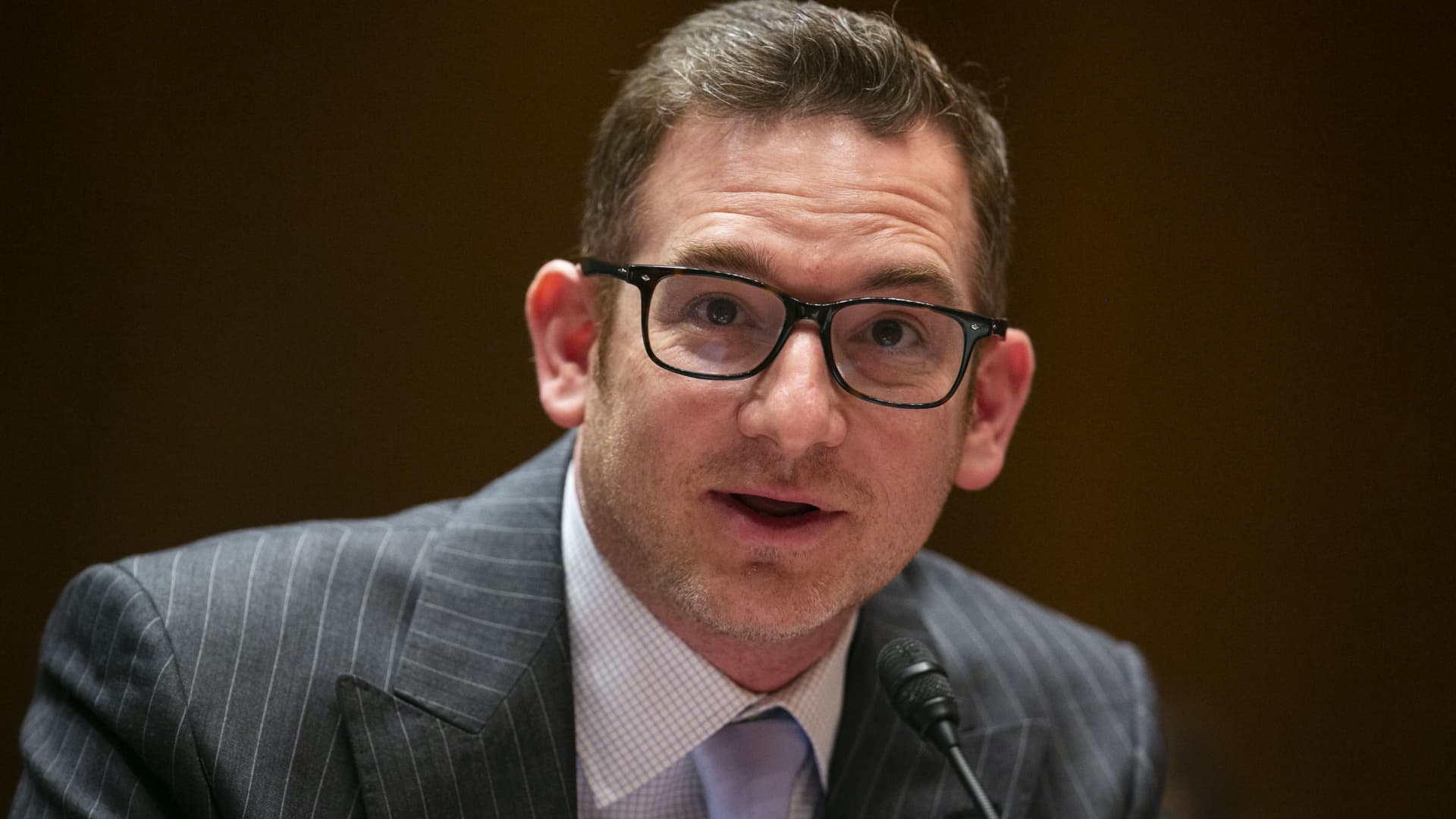Gabriel Weinberg, founder and chief executive officer of DuckDuckGo Inc., speaks during a Senate Judiciary Committee hearing in Washington, D.C., on Tuesday, March 12, 2019.
Al Drago | Bloomberg | Getty Images
Google’s exclusive contracts proved to be an “obstacle” for DuckDuckGo in pitching browsers on becoming the default search engine for their private browsing modes, DuckDuckGo CEO Gabriel Weinberg testified in federal court on Thursday.
DuckDuckGo, known for its privacy-centric search engine that rivals Google’s, had at some point pitched its search engine to be the default in private browsing modes of other browsers, Weinberg testified in Washington, D.C., District Court.
Google is facing allegations from the Department of Justice and a coalition of state attorneys general that it violated antitrust law through the use of exclusionary contracts to be the default search engine on browsers like Apple’s Safari and on phones that use Google’s Android operating system.
“We thought it was a great pitch to browsers, honestly,” Weinberg said during questioning by an attorney for the Justice Department.
DuckDuckGo’s own research has found that many consumers aren’t aware that private browsing modes do not provide as much tracking protection as they would expect. Weinberg said the company presented that information to browser makers, showing that private browsing can mislead consumers, offering DuckDuckGo as a solution to that problem.
“We really took that pitch pretty far and wide,” Weinberg said. Despite garnering interest, he said they “hit an obstacle” with companies’ contracts with Google.
In the end, DuckDuckGo decided that “it was a quixotic exercise,” Weinberg said.
A Google spokesperson declined to comment on the testimony.
WATCH: DOJ takes on Google in historic antitrust lawsuit over search dominance
Image and article originally from www.cnbc.com. Read the original article here.

